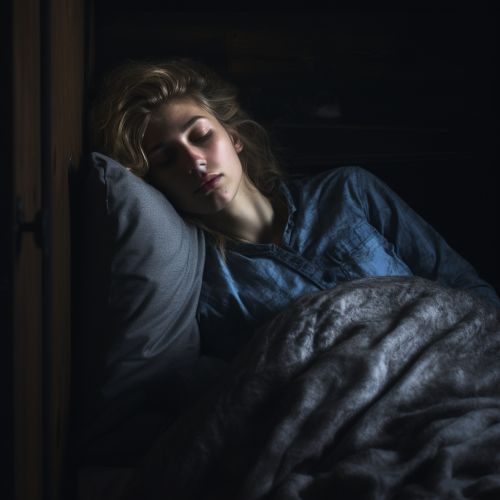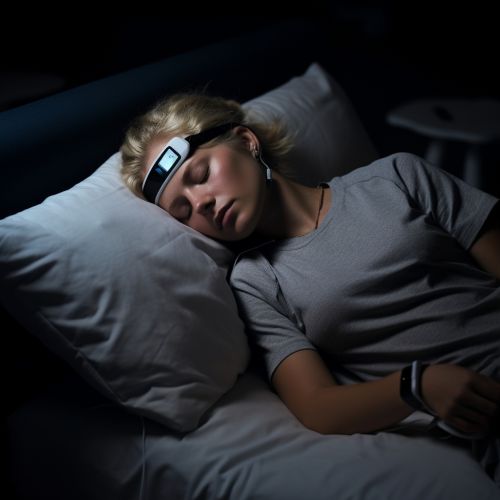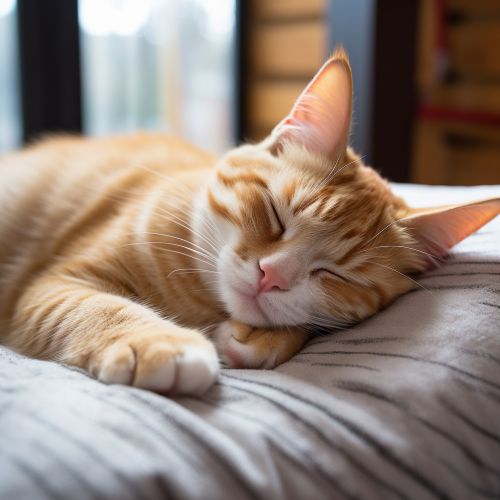Sleep
Introduction
Sleep is a naturally recurring state of mind and body, characterized by altered consciousness, relatively inhibited sensory activity, reduced muscle activity and inhibition of nearly all voluntary muscles during rapid eye movement (REM) sleep, and reduced interactions with surroundings. It is distinguished from wakefulness by a decreased ability to react to stimuli, but more reactive than a coma or disorders of consciousness, sleep displaying very different and active brain patterns Read more.
Physiology
Sleep is a complex and dynamic process that affects how you function in ways scientists are now beginning to understand. Sleep architecture, or the basic structural organization of normal sleep, has two distinct parts: non-rapid eye movement (NREM) sleep and rapid eye movement (REM) sleep Read more. Multiple rounds of these stages, known as sleep cycles, occur each night.


The process of sleep is regulated by the circadian rhythm, which is influenced by environmental cues like sunlight and temperature. This biological process regulates the timing of periods of sleepiness and wakefulness throughout the day Read more.
Stages of Sleep
Sleep is divided into two types: rapid eye movement (REM) sleep and non-rapid eye movement (NREM) sleep. NREM sleep is further divided into stages 1, 2, and 3.
NREM Sleep
NREM sleep, also known as quiet sleep, consists of three stages. Stage 1 is light sleep where you drift in and out of sleep and can be awakened easily. In stage 2, eye movement stops and brain waves become slower, with occasional bursts of rapid waves called sleep spindles. In stage 3, deep sleep begins and it's harder to awaken. The brain produces slower delta waves and there is no eye movement or muscle activity Read more.


REM Sleep
REM sleep, also known as paradoxical sleep, represents a smaller portion of total sleep time. It is the stage in which most vivid dreams occur, and, as the name suggests, rapid eye movements are a key characteristic of this stage. During REM sleep, several physiological changes also take place. The heart rate and breathing quickens, the blood pressure rises, and the body does not regulate temperature as well Read more.


Sleep Disorders
Sleep disorders, also called somnipathy, are conditions that affect the ability to sleep well on a regular basis. They are often due to stress, health conditions, and excessive noise, among other factors. Sleep disorders are categorized into types that include insomnia, sleep apnea, restless legs syndrome, and narcolepsy Read more.
Sleep and Health
Sleep is essential for maintaining physical health and cognitive functions including memory, learning, and mood regulation. Lack of sleep or poor quality sleep is linked to numerous health problems including heart disease, kidney disease, high blood pressure, diabetes, stroke, obesity, and depression. Sleep also affects growth and stress hormones, the immune system, appetite, breathing, blood pressure, and cardiovascular health Read more.


Sleep in Animals
Sleep in non-human animals refers to a behavioral and physiological state characterized by altered consciousness, reduced responsiveness to external stimuli, and homeostatic regulation. Sleep in different species is complicated by varying definitions of what constitutes 'sleep' Read more.


See Also
References
1. "Sleep: A Dynamic Activity". National Institute of Neurological Disorders and Stroke. Retrieved 2020-07-15. 2. "Stages of Sleep". American Sleep Association. Retrieved 2020-07-15. 3. "Sleep Disorders". Mayo Clinic. Retrieved 2020-07-15. 4. "How Sleep Deprivation Affects Your Heart". National Sleep Foundation. Retrieved 2020-07-15. 5. "Sleep in Animals". National Sleep Foundation. Retrieved 2020-07-15.
